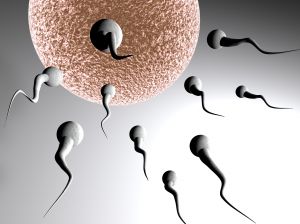 Fertility preservation for men is a usually a relatively straightforward process involving the collection of a sperm sample and cryopreserving it for later use. While this procedure works for many individuals, it isn’t an option for everyone, including boys who are too young to produce sperm or male cancer survivors whose fertility has already been affected by cancer treatment. Two techniques may help meet their needs.
Fertility preservation for men is a usually a relatively straightforward process involving the collection of a sperm sample and cryopreserving it for later use. While this procedure works for many individuals, it isn’t an option for everyone, including boys who are too young to produce sperm or male cancer survivors whose fertility has already been affected by cancer treatment. Two techniques may help meet their needs.
Previously it was assumed that most male survivors of cancer whose semen contained little to no sperm were incapable of fathering children, but a new surgical technique called microdissection testicular sperm extraction (TESE) can give these men a new way to achieve fertility. TESE enables doctors to extract healthy sperm cells from men whose testicles have been severely damaged by chemotherapy. Once the sperm is extracted, an in vitro fertilization technique is applied to fertilize an egg, potentially resulting in pregnancy. Much of the success rate of sperm retrieval was determined by the type of chemotherapy the men received, with men being treated for testicular cancer being the best candidates for this procedures and men who were treated for sarcoma, having the lowest success rate.
In addition to sperm extraction as a male fertility preservation method, new research suggests that boys could have testicular tissue removed and kept in storage for later use. In a recent study, scientists grew mouse sperm in a laboratory from testicular tissue that had been frozen for up to 25 days. Researchers cultivated small pieces of tissue from the testes of baby mice on a gel steeped in nutrients and after several weeks, they collected viable sperm from the tissue. The mouse sperm appeared to be healthy and produced 12 live births of mouse pups that went on to have young of their own. Thus far, this has been the most successful attempt to grow sperm from testicular tissue in the laboratory acting as a potential stepping stone to the creation of human sperm in the future.
It is important that men know all their fertility options when faced with cancer or a disease whose treatment may compromise their ability to reproduce. These techniques may give men and young boys the potential of parenthood.

